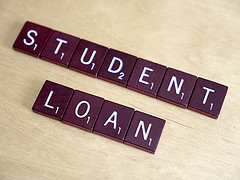
With total student debt in this country exceeding $1 trillion, there are some things that may increase an individual’s chances of student loan repayment. The National Bureau of Economic Research (“NBER”) has published a working paper regarding graduates who are not making student loan payments, and the Harvard Business Review has analyzed many of the NBER’s findings, as follows:
- Graduates from four-year colleges are more likely to repay their debts. While graduates from two-year and for-profit colleges are more likely to default.
- A $10,000 increase in a student’s career salary resulted in a 1.2% increase in student loan repayment amounts.
- For every additional $1,000 that a student borrows, the likelihood of non-payment rises by 0.4%. To offset the risk of non-payment for every additional $1,000 that a student borrows, they will need to earn an additional $10,000 in income.
- Every $10,000 increase in parental earnings equated to about $250 less in student loans for their children.
- Students whose mothers did not go to college ended up borrowing about $1,500 more and owed more on those loans after ten years.
For more information, read the NBER’s working paper or the Harvard Business Review’s article on the study.

